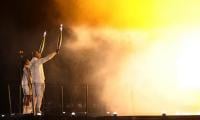Islamabad: The overall voter turnout was 53 per cent in the 2013 general elections while 51 per cent voter turnout was recorded in the 2018 general elections and the 2024 general elections voter turnout remained at 48 per cent. The voter turnout is on continuous decline but nobody was thinking about it.
The basic reason behind this continuous decline is inflation which has gone up over the past five years due to political instability as the sitting governments snatched even food items from the public during this period, people belonging to all walks of life told ‘The News’ here on Sunday.
They said that politicians always portray that they feel public pain but as soon as they are elected to parliament or provincial assemblies they forget their promises and continuously fight each other over petty issues.
After taking oath, the elected representatives will cry about bad situations and tell their voters that the country is going through a difficult time. We are helpless to increase the prices of petrol, electricity, gas and all other food items, people said.
“We elect members of the parliament only to get our basic issues resolved but unfortunately crises are increasing day by day while on the other hand, the lifestyle of elected members is touching the sky,” people bemoaned. We poll voted in a long queue but had to purchase 1-kilogram chicken meat at Rs870 against Rs220, a 20-kilogram ‘atta’ bag at Rs3200 against Rs790 and 1-kilogram onion at Rs330 against Rs20, voters strongly protested.
A market survey showed that 1-kilogram (cheap quality) onion was selling at Rs150 to Rs200, tomato at Rs100, ginger at Rs600, garlic at Rs600, a 20-kilogram ‘atta’ bag was selling at Rs3200 to Rs3500, 1-kilogram sugar at Rs145, 1-kilogram ghee at Rs510 and all vegetables were selling in skyrocketing prices. Similarly, 1 kilogram chicken meat was sold at Rs870, mutton at Rs2000, beef at Rs1100, 1-kiter milk at Rs200 to Rs220 and yoghurt at Rs220. One litre of petrol was selling at Rs273 while innocent people were committing suicide after seeing their electricity and gas bills.
However, the focus of this election is not only on addressing nearly two years of political instability but, crucially, on establishing a new, steadfast government that can stabilize an economy in crisis for Pakistan’s 241 million people.
Some 40 per cent of the population lives below the poverty line, inflation has skyrocketed to more than 42 per cent, and according to a poll released this week, about 70 per cent of Pakistanis believe economic conditions are worsening.
Last June, Pakistan faced the imminent threat of default, with foreign reserves plummeting to $4.4bn barely covering a month’s worth of imports while the currency shed more than 50 per cent of its value against the United States dollar.
Pakistan's major political parties the PML-N, PPP and PTI are making hectic efforts to form government in the Centre, Punjab and Balochistan. But haunted by ghosts of their previous collaboration under the banner of the Pakistan Democratic Movement (PDM), both sides are keeping their cards close to their chests, cautiously negotiating what a possible power-sharing deal would look like.
‘The News’ interviewed people from the twin cities of Rawalpindi and Islamabad to ask why voter turnout is reducing. They said that elected members are not reliable and do not consider public grievances.
Muhammad Iftikhar, a resident of Mohanpura said that political instability has broken the back of the common man therefore voters did not take an interest in polling votes in general elections. The voters think that nobody respects their votes therefore voter turnout was on a decline, he said.
Yasmeen Zafar, a housewife said that people were leading difficult lives paying electricity and gas bills after selling out household items. A voter casts his vote to ease his life but here we face a tough life after polling votes, she bemoaned. She said that the public wants relief at any cost. The public was not ready to listen to the hollow speeches of elected members that the country was passing through a difficult time therefore government was going to impose more and more taxes or increase petrol, electricity and gas prices, she said.
“People want relief at any cost, if elected government once again fails to provide relief to the public they will face the music in coming days,” people warned.







